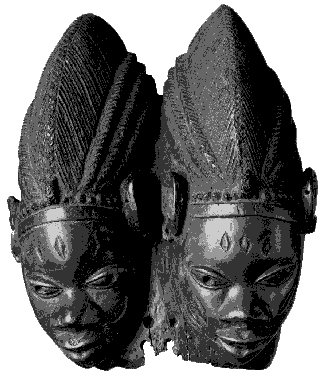To what extent does faith effect lifestyle choices?
Friday, December 5, 2014
Indigenous Group - Maasai
The Maasai people are located in the Northern part of Tanzania, around the Arusha region. The Maasai occupy a total land area of 160,000 square kilometers with a population of approximately one half million people. The Maasai speak Masai, the language is an Eastern Nilotic language spoken in Southern Kenya and Northern Tanzania. The main mode of subsistence of the Maasai is nomadic pastoralism (A herding culture). The Maasai travel place to place with their livestock due to drought in the region. They will also scavenge for meat that has been recently killed by lions, then proceed to take only what they need. Livestock plays an important part in the Maasai economy and is the primary source of income. The concept of private ownership was a foreign concept to the Maasai until in the 1960s and 1980s when the Group Ranch Project of commercializing livestock and land was forced on them first by the British and later by the government of Kenya.The Maasai people are a monotheistic people. Their god has two split personalities. Engai Narok, or “black god” is peaceful and kind whereas Engai Nanyokie, or “red god” is vengeful and causes disasters. After a person has died, with rare exceptions, they leave the body out to be eaten by scavengers. If a body is not eaten, it is presumed that nature finds something wrong with it, so the family members and friends of the deceased individual may be shunned. Because of this they pour blood or fat on the bodies to ensure that they are eaten.- The Maasai people prefer to utilize bright colors such as reds and yellows, but during certain rituals they must wear black. Sometimes young adults have to wear black alone for up to eight months as part of a coming of age process. The Maasai are especially known for their beautiful jewelry, but less and less individuals in the tribe are wearing it, instead jewelry is sold to visitors or other peoples.
 The Maasai people are a monotheistic people. Their god has two split personalities. Engai Narok, or “black god” is peaceful and kind whereas Engai Nanyokie, or “red god” is vengeful and causes disasters.
The Maasai people are a monotheistic people. Their god has two split personalities. Engai Narok, or “black god” is peaceful and kind whereas Engai Nanyokie, or “red god” is vengeful and causes disasters.
 The Maasai are especially known for their beautiful jewelry, but less and less individuals in the tribe are wearing it, instead jewelry is sold to visitors or other peoples.
The Maasai are especially known for their beautiful jewelry, but less and less individuals in the tribe are wearing it, instead jewelry is sold to visitors or other peoples.
 Maasai man drinking blood of livestock
Maasai man drinking blood of livestock
To what extent does faith effect lifestyle choices?
To what extent does faith effect lifestyle choices?
Saturday, November 15, 2014
Culture
In East and West culture there are many differences, this photo shows the differences in everyday greetings between America and India. In America it is common to greet someone with a handshake, while in India greeting someone with a bow and pressed palms, a symbol called "Namaste" is respected.
Section 1:
Culture is the collective practices of an area's people. It may be difficult to define one's culture due to the fact that it is a generalization of the people and not every person may behave that way.
In the East vs. West ppt there were a couple slides that I did not agree with. In one of the slides the photo depicts that Americans eat more cold foods than warm foods and another one that said we all shower at night. I feel that these are incorrect because these statements are obviously generalized and vary due to personal preferences, schedules, and location. My opinion differs from the authors because she in basing her views on Germany, not all of west culture or specifically American.
In U.S. culture we are very self centered people and focus mainly on our own daily life and issues, confining in ourselves rather than others. We primarily practice Christianity, a religion that mainly focus's on self reflection. Americans put more emphasize on business rather the relationships. To have money is the main goal for the average american. Obviously these descriptions aren't true for everyone because we are all different people with different goals and personalities.
Section 2:
We may use memory to make sense of a place foreign to us by remembering other cultural differences that you've seen and understood and connecting those to you're experience.
The use of memory is limited to how much you know about that specific culture because you cannot understand a culture or practice fully without communicating with someone who does.
Section 3:
Using our intimation to understand and appreciate other cultures can be done through an understanding of their religion or beliefs.
Section 1:
Culture is the collective practices of an area's people. It may be difficult to define one's culture due to the fact that it is a generalization of the people and not every person may behave that way.
In the East vs. West ppt there were a couple slides that I did not agree with. In one of the slides the photo depicts that Americans eat more cold foods than warm foods and another one that said we all shower at night. I feel that these are incorrect because these statements are obviously generalized and vary due to personal preferences, schedules, and location. My opinion differs from the authors because she in basing her views on Germany, not all of west culture or specifically American.
In U.S. culture we are very self centered people and focus mainly on our own daily life and issues, confining in ourselves rather than others. We primarily practice Christianity, a religion that mainly focus's on self reflection. Americans put more emphasize on business rather the relationships. To have money is the main goal for the average american. Obviously these descriptions aren't true for everyone because we are all different people with different goals and personalities.
Section 2:
We may use memory to make sense of a place foreign to us by remembering other cultural differences that you've seen and understood and connecting those to you're experience.
The use of memory is limited to how much you know about that specific culture because you cannot understand a culture or practice fully without communicating with someone who does.
Section 3:
Using our intimation to understand and appreciate other cultures can be done through an understanding of their religion or beliefs.
Thursday, October 30, 2014
A Single Story
- What did you know about Nigeria before watching the TED Talk? What did you learn about Nigeria after watching the talk? Before watching this video I knew nearly nothing about Nigeria besides its general location on a map. After watching this video I learned that Nigeria in many ways is similar to the United States. I also learned that it was different in ways like that they hire young children from poor families as servants and not many people have easy access to books written by Nigerian authors.
- Write down at least three quotations from the TED Talk that resonated with you and explain why you chose them. Please note the approximate time of the quotation. You can turn on the subtitles while watching the talk which may make it easier to write down the quotations. "My american roommate must have seen and heard different versions of the single story throughout her life" I thought this was interesting because her she is saying that there can be many versions but they add up to the same single story. "They were not starving, therefore, they were not authentically African" This quote was shocking in a way because a college professor even was so uneducated on what actually happens in Africa, stereotyping them all as starving people living in poverty. "Stories can break the dignity of a people but stories can also repair." This quote is saying that though stereotyping a nation can break their dignity and make you look down upon them, the damage is not permanent and can be reversed.
- Why might it be important to seek out additional stories and not rely on a Single Story of a people or place? It's important to seek out multiple stories because one persons version of something can be very different from another's, and if you only experience a single story that would be your only view of the person or place.
- Describe a time when you experienced a culture very different from your own (even a family's home, a city, or a religious event could count)? What did you learn from that experience? I went to a families home who were from India and immediately when you entered the home you had to take of your shoes, inside their home they had many tradition decorations and we ate traditional India food. My friend's parents both also had thick accents and when they were not speaking to or around me spoke Hindi.
- How might living abroad challenge your assumptions or result in a paradigm shift? I think living abroad would challenge my assumptions by opening me up to new cultural practices and hearing how people from another country think and feel about certain things that may differ from the United States.
Wednesday, October 22, 2014
Why TOK?
I believe that the Sturgis community's ability to communicate is not exemplified as well as it could be. Though Sturgis does offer three languages to take as a foreign language (Spanish, French, and Latin) I don't believe that is enough. Though Latin provides a basis for vocabulary, it is still a dead language. It is often also said that French doesn't have much practical use in today's society. I believe adding other, widely spoken and useful languages such as Mandarin would be useful for students to succed as communicators.
Subscribe to:
Comments (Atom)
